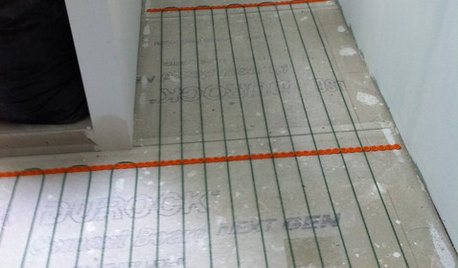When to drop collision coverage?
robynpa
15 years ago
Related Stories

SELLING YOUR HOUSEFix It or Not? What to Know When Prepping Your Home for Sale
Find out whether a repair is worth making before you put your house on the market
Full Story
BATHROOM DESIGNThe Case for a Curbless Shower
A Streamlined, Open Look is a First Thing to Explore When Renovating a Bath
Full Story
INDUSTRIAL STYLEKitchen of the Week: Style Trumps Ease in a San Francisco Loft
What’s a little ladder climbing when you’ve got a gorgeous-looking kitchen design like this?
Full Story
PAINTINGHow to Paint a Room: Prep to Painting
Find out the steps to take for the best results when doing it yourself
Full Story
ECLECTIC HOMESHouzz Tour: Wild Ideas in the Windy City
When bold art meets great architecture and interior design, something wonderful happens
Full Story
DESIGN PRACTICEDesign Practice: Start-up Costs for Architects and Designers
How much cash does it take to open a design company? When you use free tools and services, it’s less than you might think
Full Story
BATHROOM DESIGNWarm Up Your Bathroom With Heated Floors
If your bathroom floor is leaving you cold, try warming up to an electric heating system
Full Story
MOST POPULAR15 Remodeling ‘Uh-Oh’ Moments to Learn From
The road to successful design is paved with disaster stories. What’s yours?
Full Story
KITCHEN DESIGNStandouts From the 2014 Kitchen & Bath Industry Show
Check out the latest and greatest in sinks, ovens, countertop materials and more
Full Story
GARDENING GUIDESGreat Design Plant: Jeffersonia Diphylla
The long-lasting foliage of this eastern North American native excels at filling in a shady garden
Full StorySponsored
More Discussions



edselpdx
harriethomeowner
Related Discussions
car insurance glass coverage
Q
UM coverage revisited
Q
Insurance dropped my 23 year old son. Any ideas for coverage?
Q
Insurance coverage during remodeling
Q
triciae
quandary
joyfulguy
joyfulguy
graywings123
bethesdamadman
joyfulguy
blue_velvet_elvis
mnk716
Happyladi
chris8796
Pipersville_Carol
windsorbecks
harriethomeowner
jannie
Happyladi
chrisdoc
JustTrees
Pipersville_Carol
goldy
emma
garyfla_gw
joyfulguy